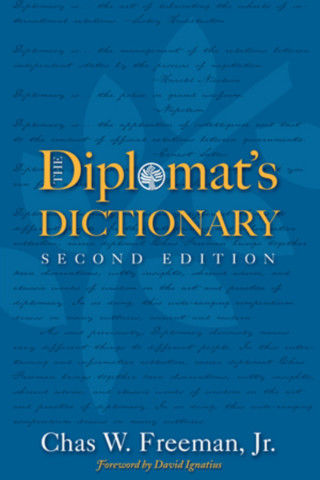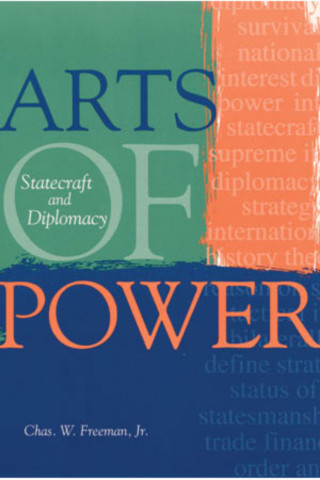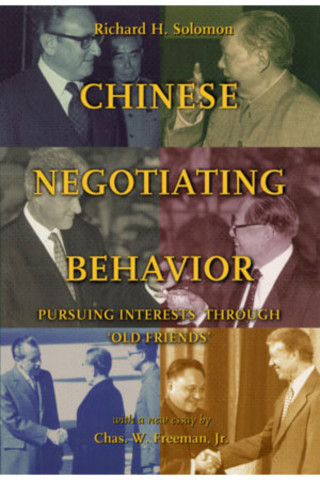Chas. W. Freeman, Jr.
Chas. W. Freeman, Jr., has been a career officer in the U.S. Foreign Service, ambassador to Saudi Arabia during the Persian Gulf War, and assistant secretary of defense for international security affairs. He was a fellow at the United States Institute of Peace in 1994-95 and is the author of Arts of Power: Statecraft and Diplomacy (USIP Press) and Diplomat's Dictionary (USIP Press).
Author's Books
With its first edition in 1994, The Diplomat’s Dictionary quickly became a classic reference book, offering professionals and enthusiasts practical information, witty insights, and words of wisdom on the art and practice of diplomacy. The expanded second edition contains 476 new entries, including definitions for selected up-to-date terminology and hundreds of additional quotations from across cultures and centuries.
In this comprehensive treatment, distinguished diplomat Chas Freeman describes the fundamental principles of the art of statecraft and the craft of diplomacy.
After two decades of hostile confrontation, China and the United States initiated negotiations in the early 1970s to normalize relations. Senior officials of the Nixon, Ford, Carter, and Reagan administrations had little experience dealing with the Chinese, but they soon learned that their counterparts from the People’s Republic were skilled negotiators.
This study of Chinese negotiating behavior explores the ways senior officials of the PRC—Mao Zedong, Zhou Enlai, Deng Xiaoping, and others—managed these high-level political negotiations with their new American “old friends.” It follows the negotiating process step by step, and concludes with guidelines for dealing with Chinese officials.
Originally written for the RAND Corporation, this study was classified because it drew on the official negotiating record. It was subsequently declassified, and RAND published the study in 1995. For this edition, Solomon has added a new introduction, and Chas Freeman has written an interpretive essay describing the ways in which Chinese negotiating behavior has, and has not, changed since the original study. The bibiliography has been updated as well.



